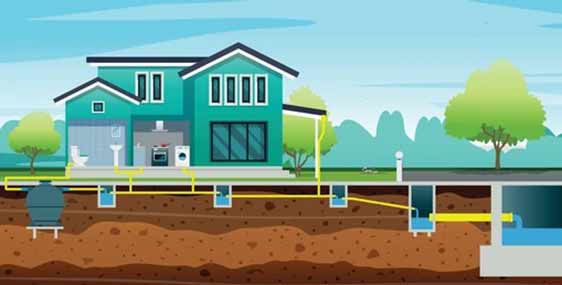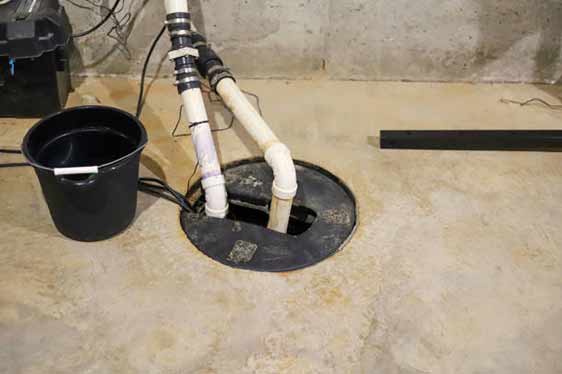
As a homeowner in Chicago, it is essential to understand the importance of maintaining your sewer and sump pump systems. These components play a critical role in ensuring the proper drainage and management of wastewater and groundwater in your home. Proper care and maintenance can prevent costly repairs and protect your home from water damage. Here we will provide you with valuable insights and best practices for caring for and maintaining your sewer and sump pump systems.
Understanding the Sewer System in Chicago
The sewer system in Chicago is a complex network of pipes and infrastructure designed to transport wastewater from homes and businesses to treatment facilities. It is crucial to understand how this system works to ensure its proper functioning and avoid potential issues.
Components of the Sewer System
The sewer system comprises several key components, including:
- Main Sewer Line: The primary pipeline that carries wastewater from your home to the municipal sewer system.
- Lateral Sewer Line: The pipeline that connects your home’s plumbing to the main sewer line.
- Sewer Cleanout: An access point that allows for the inspection and cleaning of the sewer lines.
Common Sewer System Issues in Chicago
Several common issues can affect the sewer system, including:
- Clogs and Blockages: Accumulation of debris, grease, and other materials can cause clogs and blockages in the sewer lines.
- Tree Root Infiltration: Tree roots can penetrate and damage sewer lines, leading to blockages and leaks.
- Pipe Deterioration: Over time, sewer pipes can deteriorate due to age, corrosion, and other factors.
Preventive Measures for Sewer System Maintenance
To maintain the health of your sewer system, consider the following preventive measures:
- Avoid Flushing Non-Biodegradable Items: Only flush toilet paper and human waste. Avoid flushing items such as wipes, feminine hygiene products, and paper towels.
- Proper Grease Disposal: Dispose of grease and cooking oils in the trash rather than pouring them down the drain.
- Regular Inspections: Schedule regular camera inspections of your main sewer line to identify and address potential issues early.
Understanding the Sump Pump System
The sump pump system is designed to prevent basement flooding by removing excess groundwater from around your home’s foundation. Understanding how this system works is essential for proper maintenance and care.
Components of the Sump Pump System
The sump pump system consists of several key components, including:
- Sump Pit: A pit or basin where excess groundwater collects.
- Sump Pump: A pump that removes water from the sump pit and discharges it away from your home.
- Discharge Pipe: A pipe that carries the water from the sump pump to a designated drainage area.

While regular homeowner maintenance is essential, it is also crucial to schedule professional maintenance and inspections for your sewer and sump pump systems.
Common Sump Pump Issues in Chicago
Sump pumps can experience various issues, such as:
- Power Failure: Sump pumps rely on electricity to operate, and power outages can render them ineffective.
- Float Switch Malfunction: The float switch, which activates the pump, can become stuck or fail to function properly.
- Clogged Discharge Pipe: Debris and sediment can clog the discharge pipe, preventing proper water removal.
Preventive Measures for Sump Pump Maintenance
To ensure the proper functioning of your sump pump system, consider the following preventive measures:
- Regular Testing: Test your sump pump periodically to ensure it is working correctly. Pour water into the sump pit to trigger the pump and verify that it discharges water properly.
- Backup Power Source: Install a sump pump battery backup system or a generator to ensure your pump can operate during power outages.
- Clean the Sump Pit: Regularly clean the sump pit to remove debris and sediment that can clog the pump and discharge pipe.
Professional Maintenance and Inspection for Sewer and Sump Pump Systems
While regular homeowner maintenance is essential, it is also crucial to schedule professional maintenance and inspections for your sewer and sump pump systems. Professional plumbers have the expertise and equipment to identify and address potential issues that may not be apparent to homeowners.
Choosing a Professional Plumber in Chicago
When selecting a professional plumber for maintenance and inspection, consider the following factors:
- Experience and Expertise: Choose a plumber with experience and expertise in sewer and sump pump systems.
- Licensing and Certification: Ensure the plumber is licensed and certified to perform the necessary work.
- Reputation and Reviews: Check online reviews and ask for references to gauge the plumber’s reputation and quality of work.
Emergency Preparedness for Sewer and Sump Pump Failures
Despite your best efforts, emergencies can still occur. Being prepared for potential sewer and sump pump failures can minimize damage and ensure a swift response:
- Emergency Contacts: Keep a list of emergency contacts, including a reliable plumber and local utility services.
- Water Shutoff Valve: Know the location of your home’s main water shutoff valve and how to operate it in case of a severe leak.
- Flood Prevention Measures: Consider installing flood sensors and alarms to alert you to potential water issues early.
Environmental Considerations for Sewer and Sump Pump Systems
Caring for your sewer and sump pump systems also involves being mindful of environmental impacts. Implementing eco-friendly practices can benefit both your home and the community:
- Water Conservation: Practice water conservation to reduce the burden on the sewer system. Fix leaks promptly and use water-saving fixtures.
- Proper Waste Disposal: Dispose of hazardous materials, such as chemicals and pharmaceuticals, according to local regulations to prevent contamination of water sources.
- Green Infrastructure: Explore options like rain gardens and permeable pavements to manage stormwater naturally and reduce runoff.
Wrapping It Up
Caring for and maintaining your sewer and sump pump systems is essential for protecting your home from water damage and ensuring the proper functioning of your plumbing. By understanding the components and common issues of these systems and implementing preventive measures, you can avoid costly repairs and prolong the lifespan of your sewer and sump pump systems. Additionally, scheduling regular professional maintenance and inspections will help identify and address potential issues early, providing you with peace of mind and a well-maintained home.